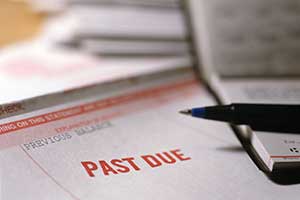
People are often confused when it comes to Chapter 7 bankruptcy and taxes, as it is a common belief that bankruptcy cannot eliminate (discharge) tax debt. Fortunately, this is not always the case. While -most taxes are not dischargeable, you may be able to discharge federal, Ohio, and local income tax debts through Chapter 7 — if they meet certain qualifications. If you do not qualify to file Chapter 7, you may be able to discharge some tax debts through Chapter 13 bankruptcy, as well.
Bankruptcy, a legal way to have many debts forgiven, can put people struggling with debt and harassed by creditors on the road to financial recovery. Chapter 7 may eliminate unsecured debts, including credit cards, medical bills and installment loans. It stops, prevents or resolves collections, loan deficiencies, repossessions, wage garnishment and civil judgments. And it may eliminate some tax debts.
How do you know whether bankruptcy is right for you? The skilled and seasoned Ohio bankruptcy attorneys at Fesenmyer Cousino Weinzimmer understand that mounting debts and tax burdens can overwhelm even the most hard-working and well-intentioned people. We offer a free consultation to evaluate your individual financial situation and find the debt-relief plan that is best for you.
Contact us online or call our offices today to set up your free consultation.
Overview of Chapter 7 Bankruptcy
Chapter 7 bankruptcy is often the best option if your income is too low to pay credit card bills, medical bills, utilities, payday loans or personal loans. The process is over in a few months, so you can begin rebuilding credit quickly. While you might have to sell property to help pay off creditors, there are Ohio bankruptcy exemptions that list types of property that cannot be sold. Exemptions can include your home, clothing, cars, pensions, alimony and child support, equipment used for work (like tools) and household furnishings. If you do not own a great deal of property, your possessions may all be exempt, qualifying you for a “no asset” case, and you may be able to keep your home, car and other items from being liquidated.
Not everyone is eligible for Chapter 7 bankruptcy protection. Your income and debt will be subjected to something called a “means test” to determine whether you qualify. If you are not eligible for Chapter 7, filing for Chapter 13 may still be an option.
Chapter 13 provides a payment plan to repay some debts over a three- to five-year period, after which the remaining debts are discharged. Both plans allow for ways to eliminate some tax debts.
Tax Debts and Bankruptcy
IRS, state, and local tax debts may be dischargeable through Chapter 7 bankruptcy if these debts meet certain requirements:
- The taxes are for federal or state income taxes or taxes on gross receipts.
- The return was due (including all valid extensions) at least three years before filing for bankruptcy.
- The tax return was filed at least two years before filing for bankruptcy.
- The tax assessment was at least 240 days before filing for bankruptcy, unless there was a compromise offer with you or you had previously filed for bankruptcy.
- There was no fraud or willful evasion of taxes.
For Chapter 13, income tax debts are treated as non-priority debts and must also stand up to the same tests as those under Chapter 7.
Nondischargeable Tax Debts
Some examples of tax debts that are not dischargeable include:
- Recent income tax debts within 3 years.
- Tax liens. Tax liens, also known as secured taxes, will remain if they were recorded against your property before you file for bankruptcy.
- Taxes that a third party is required to collect or withhold.This includes taxes such as FICA, Medicare, and income taxes that an employer must withhold, and sales taxes paid by customers.
- Certain employment taxes, excise taxes, and custom duties.
- Non-punitive tax penalties on nondischargeable taxes — if the penalty occurred less than three years before filing for bankruptcy.
- Erroneous tax refunds or credits relating to nondischargeable taxes.
Also, tax debts that arise from unfiled tax returns are not dischargeable in either a Chapter 7 or Chapter 13 bankruptcy.-.
If you file for Chapter 7, you will still be responsible for repaying these debts after your discharge. If you file for Chapter 13, the nondischargeable tax that is not paid through the plan, will remain at the end of your case.
Contact Us and Get Help
Determining whether or not tax debts can be discharged is complex, so it pays to get legal assistance. The experienced and compassionate lawyers at Fesenmyer Cousino Weinzimmer are trained to identify these tax issues. We offer a free consultation during which we can examine the facts of your individual situation before filing, to help you make informed and educated decisions.
During your consultation, we will evaluate your entire financial situation by looking at your income, your debts and your goals. We will make sure you are aware of all your options and help you decide on the path to a brighter future that makes sense in your case.
Delaying can only worsen your situation, so contact us online or call the Ohio bankruptcy attorneys at Fesenmyer Cousino Weinzimmer today to set up your free consultation so we can determine what debt relief solutions will work best for you.


